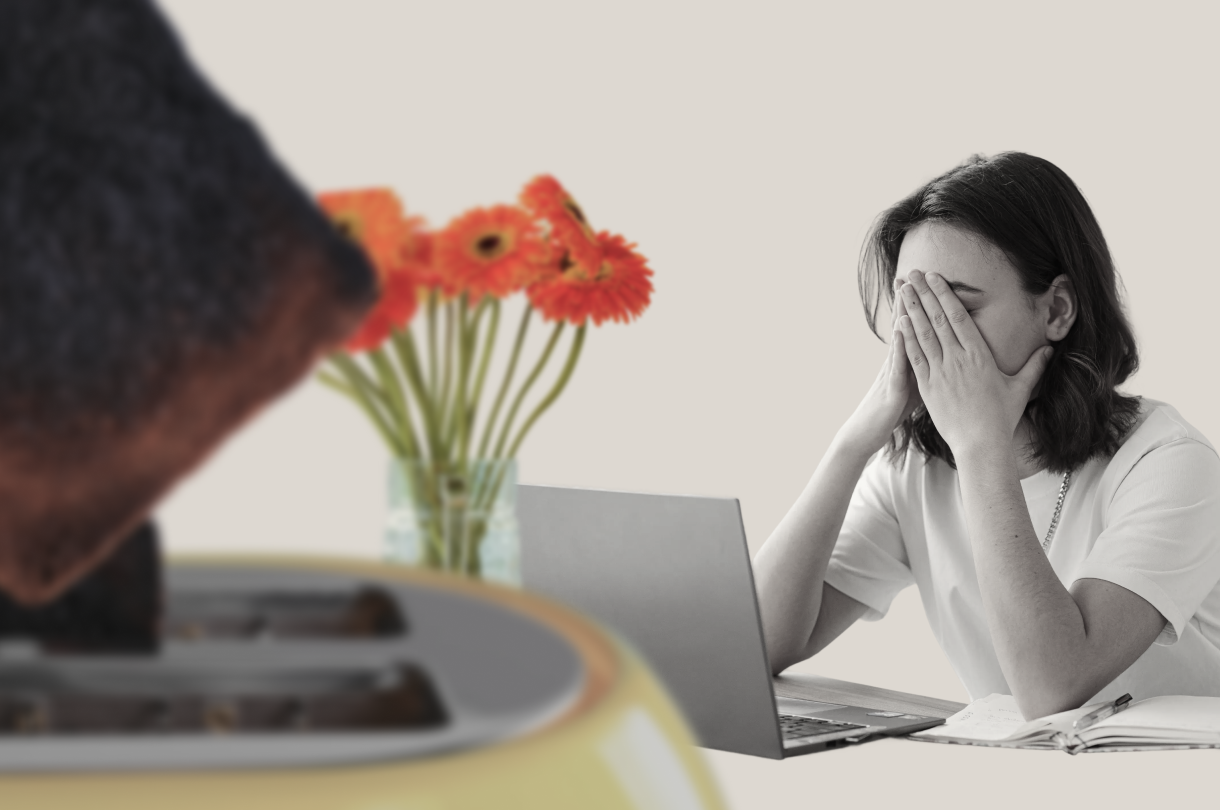There’s no doubt about it: amid high turnover rates, employee disengagement, and an uncertain economy, HR professionals are more stressed out than ever before. According to the HR Professional’s Stress Index, 83% of people leaders are worried about falling behind, and 81% are afraid they won’t have enough staff to get all their work done.
We all know that high levels of stress affects physical health. But stress can also affect mental health. Intense pressure and worry can lead to increased levels of anxiety and depression.
It’s never been a better time to engage in self care to improve your mental health. And this means going back to the basics.
Mental health basics
The basics of mental health are just that: basic. Eating well, getting enough exercise and sleep, mitigating stress, and connecting with others can go a long way in creating balance, reducing anxiety, and helping People leaders navigate the demands of today’s workplace.
The mental health basics are also easy to practice. You don’t need a lot of time, money, or special equipment to improve your nutrition, exercise, sleep, stress management, and support systems.
Here are some ways to get started.
Prioritize nutrition
It’s no secret that sometimes we don’t eat as healthy as we should. Who hasn’t craved a donut or chips during an afternoon slump? But how you eat—and how regularly—can affect your mental health, with sugary, processed foods triggering anxiety, mood swings, and fatigue.
Protein-rich foods can keep you on an even keel, and so can eating regularly.
Consider swapping out a sugary afternoon snack for something with protein and fat, such as almonds and string cheese. And if you’re going to have that late afternoon coffee, have a snack with it to mitigate the high and subsequent crash from the caffeine.
Exercise regularly
Ah, exercise. We’re always being told to do more of it, more often. And for good reason—being more physical throughout the day can calm flight or fight impulses, reduce depressive thinking, and even change the way we perceive pain.
The challenge? It can feel impossible to fit in a consistent workout routine, especially right now, when you’re working overtime to woo candidates, keep high-performers from jumping ship, and strategize for company growth in the midst of a talent shortage.
But there’s a simple mindshift that can help: think about “moving” instead of “exercising.” Movement can be anything from walking in the grocery store, getting up from the sofa every commercial break, and even vacuuming the house.
Consider doing one or more of these throughout your day:
Take a 10-minute walk. Walk in your neighborhood, downtown, up and down the street, around your building, or in a park (or a parking lot).
Dance for 5 minutes. They say dance like nobody’s watching, which is great advice for moving for mental health. Put on your favorite music and don’t worry about having the “right” steps. Just shake, wiggle, and move!
Incorporate movement into your housework or yard work. Do some lunges while vacuuming or squats while gardening.
Improve your sleep hygiene
Sleep is the time when your brain—and your body—repairs itself. Getting enough sleep can lower stress, improve anxiety, and likely even increase longevity. But sometimes sleep can be challenging. Stress, caffeine, and anxiety can make it difficult to fall and even stay asleep.
What can you do? Improve your sleep hygiene.
Experts advise going to bed (and waking up) at around the same time every day, putting down your phone or tablet 30 minutes to an hour before retiring, eliminating caffeine after 3 pm (if you’re sensitive to its effects), and sleeping in a cool, dark room. That said, one of the things that keeps us from sleeping is, ironically, the fear of not sleeping.
If you go to bed and can’t fall asleep within 15-20 minutes, get up and go into a different room. Read a few pages of a book (not on your phone!), write in a journal, or take time to do a breathing meditation.
Learn three more ways to sleep better from Spring Health Provider Mandy Castanon.
Take steps to reduce stress
Getting enough rest and bumping up your nutrition are mental health basics for another reason: they also help manage cortisol, which helps with lowering stress.
Other ways to lower stress include meditating, journaling, and visualizing. Mental Health America (MHA) also recommends getting rid of the idea that you have to be perfect. Be realistic about what you can accomplish and learn to say “no” to things you don’t want to do.
With Spring Health, you can also access Moments, a library of clinically-validated, digital exercises to help your mental, emotional, and physical wellbeing. Just select how you’re feeling and the best exercises will be recommended for you.
These on-demand tools are based in cognitive behavioral therapy, and can provide immediate relief for a variety of mental health stressors and conditions, including sleep, burnout, anxiety, and loneliness.
Create meaningful connection
Human beings are social creatures. Research shows that, across cultures, meaningful connection with friends, family, and peers reduces depression, anxiety, and other mental health conditions.
Reaching out can be as simple as taking a walk with a friend or playing a team sport. MHA recommends connecting with people who have similar hobbies and interests. Consider joining a MeetUp, community club, or even game night at your local game store.
Volunteering can also boost social connection. Studies show that people who volunteer report lower levels of depression.
Going beyond the basics
While the mental health basics go a long way, there are times when you might need a little bit more help.
Just talking to a therapist on a regular basis can make a difference. Research shows that therapy brings lasting benefits, including lower anxiety and depression, a more positive outlook, improved coping skills, and hope for the future.
With Spring Health, you have access to regular therapy sessions and can choose the provider that’s right for you from our diverse network. Additionally, your Care Navigator can provide clinical guidance and referrals, as well as follow ups and general support.
Start with the small steps
Taking care of yourself is vitally important. While you can’t control the talent shortage, you can control how—and how often—you engage in self care.
Starting with small steps, using these mental health basics, can transform your mood and outlook on a daily basis. Consider making a simple plan, like the sample one below:
- Nutrition: Eat one protein snack a day.
- Movement: Walk around the block four times.
- Sleep: Go to bed 15 minutes earlier.
- Stress: Say no to one thing every day.
- Support: Text a friend just to say hi.
Sharing these mental health basics
One last thing about mental healthcare basics: they’re not only easy to use, they’re easy to share. Encourage your employees to engage in daily self care by sharing this list and offering suggestions for managing stress.
Here are a few more ways you can lead the charge for better mental health at your organization.










.png)





.png)
.png)
.png)



















